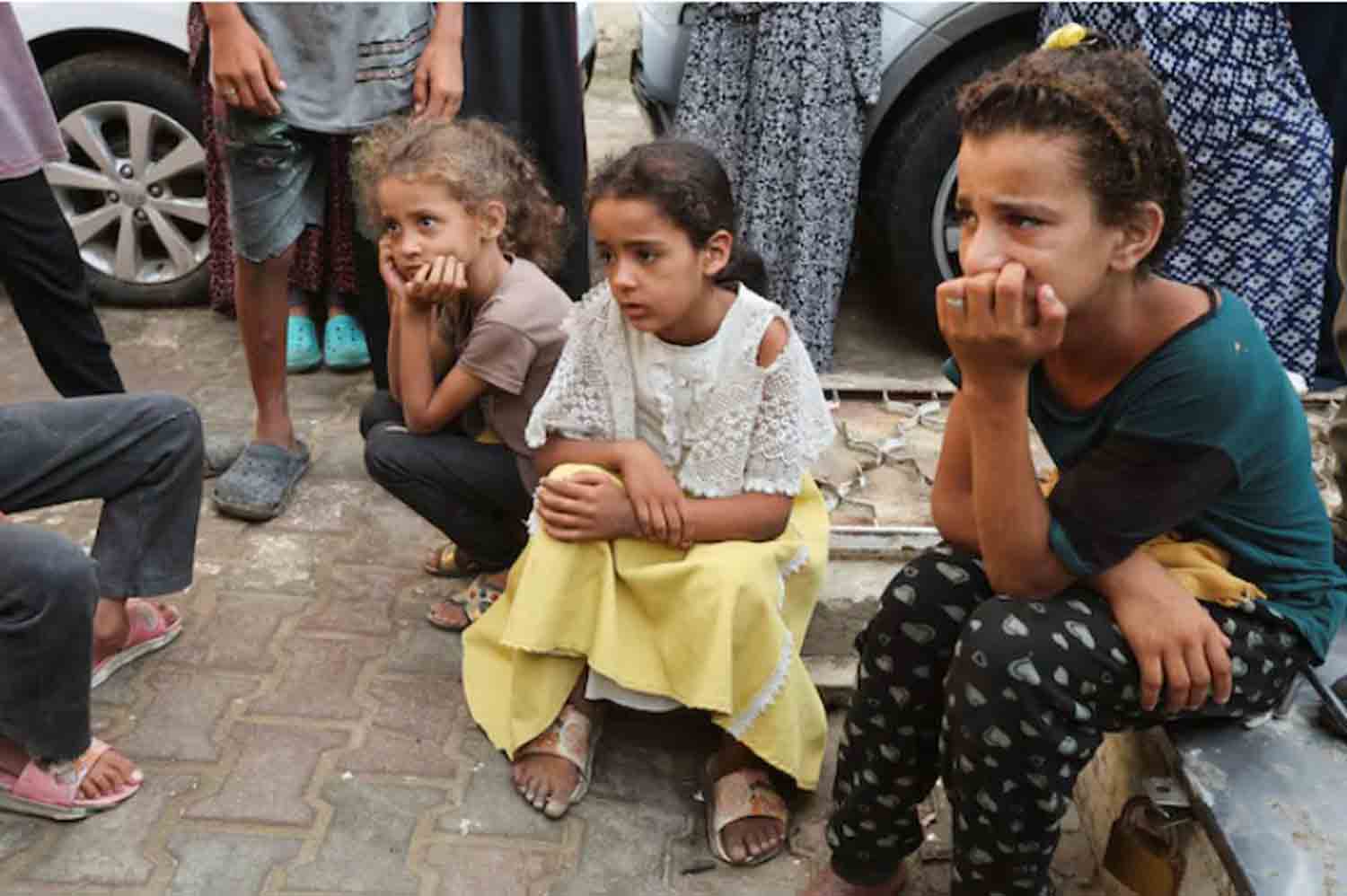Iran’s government is exhibiting considerable anxiety and has been actively pursuing urgent diplomatic discussions with various Middle Eastern nations. The aim is to explore possibilities for mitigating the extent of Israel‘s retaliation following its missile strike earlier this month. Should these efforts prove unsuccessful, Iran seeks assistance in safeguarding its interests, as reported by US media.
This apprehension is largely due to doubts regarding the US’s ability to persuade Israel against targeting Iranian nuclear facilities and oil infrastructure. Additionally, Iran’s primary proxy militia in the region, Hezbollah, has suffered significant setbacks due to recent Israeli military actions, further heightening Tehran’s concerns.
The US has been in dialogue with Israel regarding its intended response to Iran’s attack on October 1. US officials have expressed a clear preference for Israel to refrain from striking Iranian nuclear sites or oil facilities. President Joe Biden recently communicated with Israeli Prime Minister Benjamin Netanyahu, marking their first discussion in nearly two months, during which he emphasized that Israel’s response should be “proportional.”
The Gulf allies of the United States, including the United Arab Emirates, Bahrain, and Qatar, have conveyed their apprehensions to the US regarding a possible assault on Iranian oil facilities. Such an attack could lead to significant economic and environmental repercussions for the entire region, according to an Arab diplomat speaking to CNN.
The Biden administration is increasingly alarmed that the ongoing cycle of retaliatory strikes between Iran and Israel, which escalated earlier this year following Israel’s attack on what Iran claimed was its consulate in Damascus, could escalate into a broader regional conflict that might involve the US.
A significant aspect of these concerns is the perceived decline in US influence over Israel over the past year. In a manner similar to its actions in Gaza, Israel has shown a growing tendency to ignore US calls for restraint in Lebanon, where its extensive bombing campaign and ground operations have resulted in over 1,400 casualties since late last month.
Moreover, Israel did not seek US consultation prior to launching a large-scale attack that targeted thousands of communication devices used by Hezbollah operatives last month, nor before the assassination of Hezbollah leader Hassan Nasrallah in Beirut, which disrupted a fragile ceasefire proposal put forth by the US and France just 48 hours prior.
As of Friday, Israel’s security cabinet has yet to make a decision on the next steps, as reported by an Israeli official to CNN. While the divergence between US and Israeli positions appears to be narrowing, a US official cautioned that this alignment may not be sustained.
A senior administration official commented on the discussions within the Israeli cabinet, stating, “We cannot definitively ascertain whether they voted or not,” and expressed doubts regarding the transparency of the information Israel is providing to the United States. The official indicated that it may be unwise to place too much confidence in the actions of the Israeli government.
Israel has not provided any guarantees against targeting Iran’s nuclear installations.
For many years, Israel has been strategizing potential strikes on Iran’s nuclear capabilities, with a military exercise conducted two years ago simulating such an attack. Additionally, Israel is believed to have been involved in the assassination of Iranian nuclear scientists in recent years, and Iranian nuclear facilities have faced cyberattacks, likely attributed to Israel, including the notable Stuxnet virus that successfully infiltrated Iran’s Natanz nuclear site.
” Our response will be formidable”
Israel’s Defense Minister Yoav Gallant delivered a stern message to Iran regarding his country’s potential actions on Wednesday.
“Our response will be formidable, accurate, and most importantly – unexpected. They will be left bewildered by the events that unfold,” Gallant stated.
According to an Arab diplomat, the Gulf states generally prefer to remain neutral in the ongoing conflict. Although Iran has publicly declared that any entities perceived as supporting Israel will be regarded as aggressors, it is improbable that Iran’s neighboring countries would overtly defend Tehran in the event of an Israeli offensive.
However, Saudi Arabia, the United Arab Emirates, and Qatar have communicated to both the United States and Iran that they will not permit Israel to utilize their airspace for strikes against Iran, as reported by the Arab diplomat and another source familiar with the situation. Additionally, a Jordanian official confirmed that Jordan will safeguard its airspace from any unauthorized incursions, irrespective of their source.
The United States does not perceive that Iran seeks to engage in a full-scale conflict with Israel. Iran’s Foreign Minister, Abbas Araghchi, stated in an interview with Al Jazeera this week that Netanyahu is “the only one who wants a war and to set the region on fire to stay in power.”
Nevertheless, the US has communicated through backchannels to Tehran, advising them to carefully consider their response in the event of an Israeli strike, according to an official.
Qatar frequently engages in dialogue with Iranian officials and conveys their responses back to the US. However, the US official noted that ultimately, “we just do not know what [Iran] will do.” Various influential figures within Iran may have differing perspectives on how to react to Israel, which will largely depend on the magnitude and nature of the anticipated Israeli action, another US official indicated.
This official also mentioned that Iran’s messaging has remained consistent, both publicly and privately, since the country launched its missile attacks on Israel earlier this month, with no significant shifts in their communication.
Iran has shown a keen interest in seeking assistance from Saudi Arabia to deter an Israeli assault and in leveraging their influence with Washington to help resolve the ongoing crisis, as reported by an Arab diplomat to CNN.
Officials from various nations have convened three times within a month, and Araghchi visited Saudi Arabia on Wednesday to discuss regional issues and to address the actions of the Zionist regime in Lebanon and Gaza, as reported by local media.
The international community is closely monitoring Israel’s actions as it considers its response. However, until Saturday evening, Israel will observe a period of inactivity in recognition of Yom Kippur, the Jewish Day of Atonement, which is regarded as the most sacred day in Judaism. While it is not entirely out of the question for Israel to initiate military action, all businesses, restaurants, and services will be closed, public transportation will be suspended, and the main airport, Ben Gurion in Tel Aviv, will also be closed.
Discover more from Defence Talks | Defense News Hub, Military Updates, Security Insights
Subscribe to get the latest posts sent to your email.





